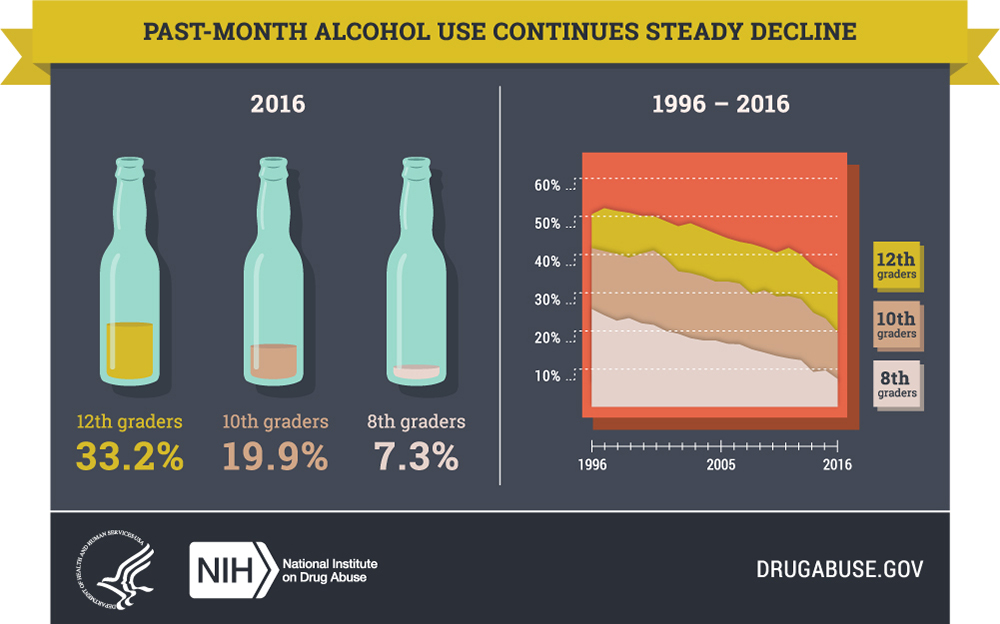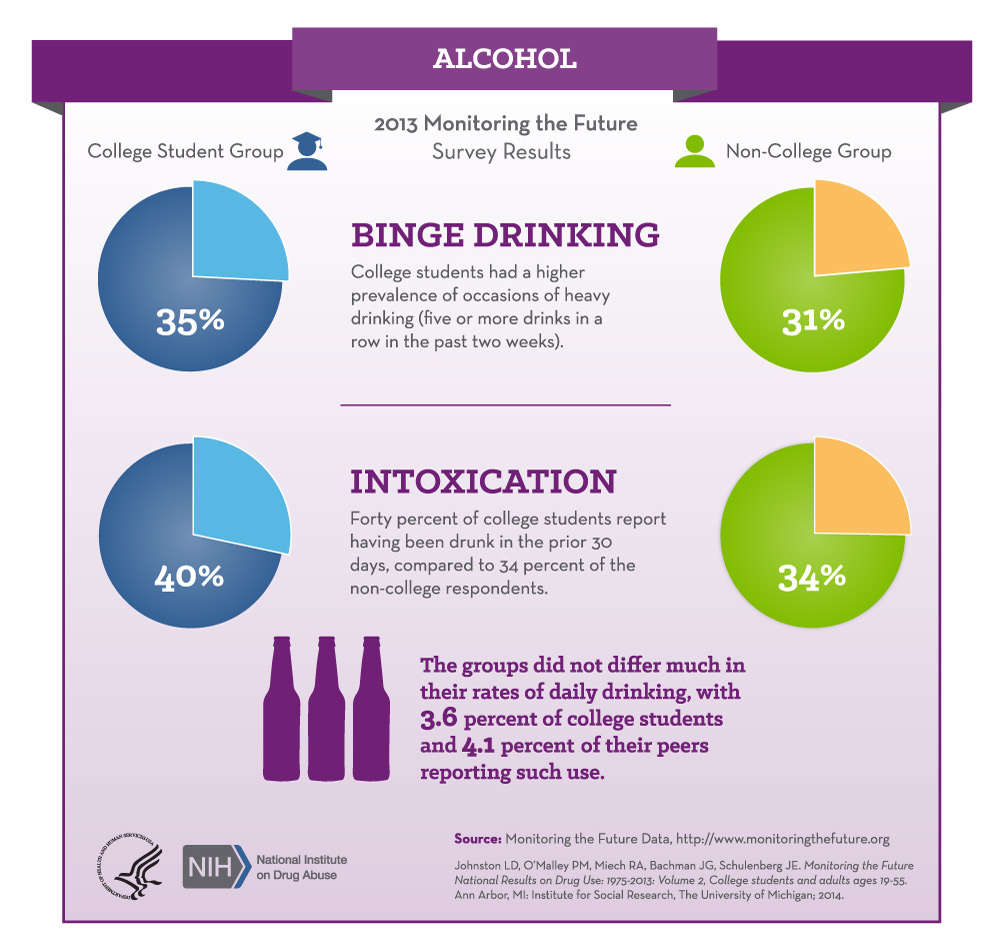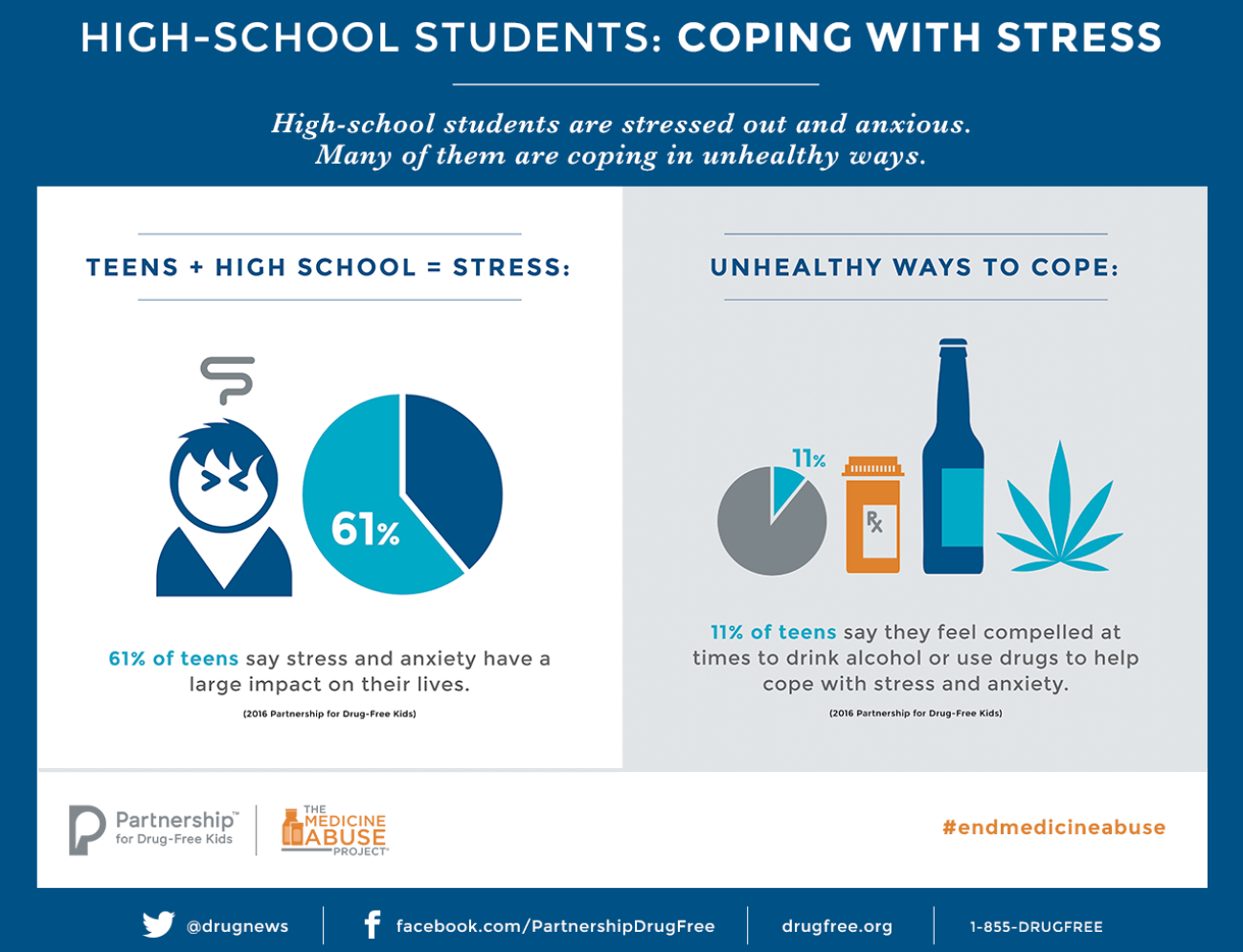
Op-Ed: Drinking to Cope – Poor stress coping skills fueling adolescent binge drinking
Rebecca Wenrich Wheeler – Senior Health Educator
According to the 2015 Youth Risk Behavior Survey (YRBS), during the past 30 days 33% of high school students drank some alcohol and 18% binge drank (CDC 2016). A binge is considered 4 drinks in 2 hours for women, and 5 drinks in 2 hours for men (Goldstein, A., et al. 2016). To understand what factors might prompt an adolescent to a binge drink, we must look beyond the notion of simply wanting a taste of “forbidden fruit”. There are more European adolescent drinkers in countries with lower legal purchase ages than the United States. Also, youth in European countries are more likely to report being intoxicated before age 13 than in the US  (Friese & Grube, 2005). Additionally the 2016 Monitoring the Future Study reports fewer US teens are drinking now than in decades past (NIDA, 2016). Attributing adolescent drinking only as a desire to experiment with the illegal further masks the deeper problem: adolescent binge drinkers are drinking to cope.
(Friese & Grube, 2005). Additionally the 2016 Monitoring the Future Study reports fewer US teens are drinking now than in decades past (NIDA, 2016). Attributing adolescent drinking only as a desire to experiment with the illegal further masks the deeper problem: adolescent binge drinkers are drinking to cope.
Several factors influence some teens to drink more than their peers. Childhood behaviors such as restlessness, distractibility, and impulsivity increase the likelihood of heavy drinking in adolescence. In addition, “Teens experiencing uncontrolled stress may also be more likely to use illegal drugs or engage in underage drinking, especially when not monitored” (American Psychological Association). Stress not only may fuel adolescent binge drinking, but heavy drinking during these pivotal years impacts how the brain handles stress in the future. As we age and learn to cope with stressors, less cortisol is released during stress (Nagappan 2016). However, in teens who binge, their brains do not learn to cope with stress, and as a result, cortisol release doesn’t drop over time as compared to non-drinking counterparts (Nagappan 2016). Eventually the brain and body becomes unable to distinguish between a small stressor and something life threating. The brain reacts as if everything is life-threatening, thus increasing the reactive binge behavior. Males tend to have higher drinking rates in response to stressors than females, especially if they have higher expectations of alcohol to relieve stress (Grzywacz & Almeida 2008). Although, studies show positive changes in diet and exercise reduces the negative effects of stress and in turn the rate of alcohol consumption (Goldstein, A., et al. 2016). In particular, foods with anti-inflammatory properties reduce negative effects of stress on the brain (Goldstein, A., et al. 2016).
As youth transition into college, binge drinking rates increase. College students with depressive symptoms and other mental health challenges are more likely to engage in risky drinking in comparison to the general population. This behavior is often labeled “drinking to cope” (Bravo, A. J., et al. 2016).
 Promising pilot studies use mindfulness intervention to alter binge drinking behaviors among college undergraduates. Practicing mindfulness involves being purposely aware of the present moment. The person becomes more aware of their environment and how he or she reacts to changes in the environment. “Mindfulness may influence alcohol use among college students by modulating the relationship of automatic process on patterns of alcohol use” (Mermelstein & Garske 2015). After mindfulness training, the student becomes aware of environmental stimuli that prompts binge drinking, thus weakening the automatic response. Alcohol cravings decreased within two months after Mindfulness-Based Relapse Prevention (MBRP) intervention, reducing the student’s association between heavy alcohol use and stress reduction (Bravo, A. J., et al. 2016). Participants also reported feeling more in control of their choices after MBRP (Mermelstein & Garske 2015).
Promising pilot studies use mindfulness intervention to alter binge drinking behaviors among college undergraduates. Practicing mindfulness involves being purposely aware of the present moment. The person becomes more aware of their environment and how he or she reacts to changes in the environment. “Mindfulness may influence alcohol use among college students by modulating the relationship of automatic process on patterns of alcohol use” (Mermelstein & Garske 2015). After mindfulness training, the student becomes aware of environmental stimuli that prompts binge drinking, thus weakening the automatic response. Alcohol cravings decreased within two months after Mindfulness-Based Relapse Prevention (MBRP) intervention, reducing the student’s association between heavy alcohol use and stress reduction (Bravo, A. J., et al. 2016). Participants also reported feeling more in control of their choices after MBRP (Mermelstein & Garske 2015).
In the Mermelstein and Garske (2015) study, after the initial 4-week intervention, participants reported “fewer binge episodes, less consequences of alcohol use, higher alcohol refusal self-efficacy and higher dispositional mindfulness” (Mermelstein & Garske 2015). Although participants did not completely stop alcohol use, binge drinking behaviors did decrease, which fits within a harm reduction model (Mermelstein & Garske 2015). In addition, people who demonstrate high trait mindfulness were much less likely to drink to cope than those who show low trait mindfulness. “Mindfulness is a protective factor that can decouple the conditioned associations between negative emotional states and substance use” (Bravo, A. J., et al. 2016). When we provide young people the opportunity to practice stress management skills, we in turn fortify them with protective factors to prevent risky substance use.
Resources:
American Psychological Association. Talking to teens about stress. Retrieved April 13, 2017, from http://www.apa.org/helpcenter/stress-talk.aspx
Bravo, A. J., Pearson, M. R., Stevens, L. E., & Henson, J. M. (2016). Depressive Symptoms and Alcohol-Related Problems Among College Students: A Moderated-Mediated Model of Mindfulness and Drinking to Cope. Journal of Studies on Alcohol and Drugs,77(4), 661-666. doi:10.15288/jsad.2016.77.661
Friese, B., & Grube, J. W. (2005). Youth Drinking Rates and Problems: A Comparison of European Countries and the United States. Retrieved from http://resources.prev.org/documents/ESPAD.pdf
Grzywacz, J. G., & Almeida, D. M. (2008). Stress and binge drinking: A daily process examination of stressor pile-up and socioeconomic status in affect regulation. International Journal of Stress Management,15(4), 364-380. doi:10.1037/a0013368
Goldstein, A., Déry, N., Pilgrim, M., Ioan, M., & Becker, S. (2016). Stress and binge drinking: A toxic combination for the teenage brain. Neuropsychologia,90, 251-260. doi:10.1016/j.neuropsychologia.2016.07.035
Mermelstein, L. C., & Garske, J. P. (2015). A brief mindfulness intervention for college student binge drinkers: A pilot study. Psychology of Addictive Behaviors,29(2), 259-269. doi:10.1037/adb0000040
Nagappan, P. (2016, August 07). Teen drinking may damage ability to cope with stress. Retrieved April 12, 2017, from https://www.sciencenewsforstudents.org/article/teen-drinking-may-damage-ability-cope-stress
NIDA (2016, December 13). Monitoring the Future. Retrieved April 11, 2017, from https://www.drugabuse.gov/related-topics/trends-statistics/monitoring-future
CDC. (2016, August 11). Youth Risk Behavior Support Survey. https://www.cdc.gov/healthyyouth/data/yrbs/results.htm

